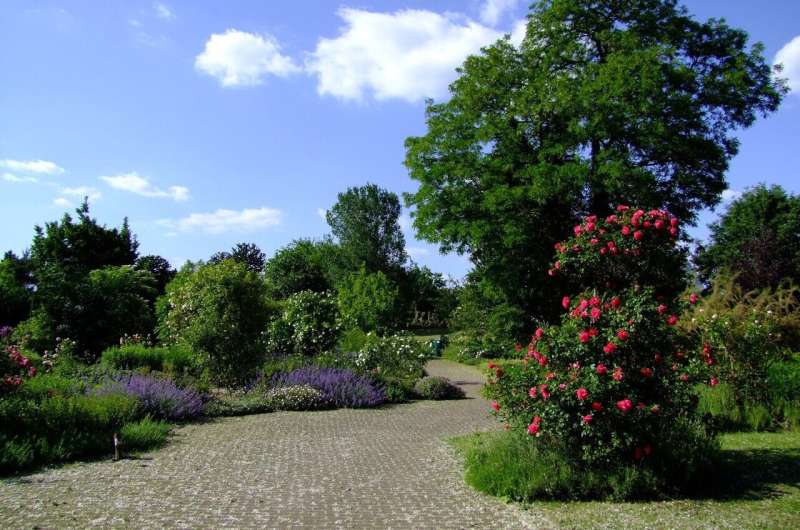This article has been reviewed according to Science X's editorial process and policies. Editors have highlighted the following attributes while ensuring the content's credibility:
fact-checked
trusted source
proofread
Wetlands, parks and botanical gardens the best ways to cool cities during heat waves, finds study

Wetlands, parks and even botanical gardens among the best ways to cool cities during heat waves—says biggest-ever global study
Botanical gardens are not just beautiful—they can cool the city air by 5°C during heat waves, according to the most comprehensive review of its kind led by the University of Surrey. Parks and wetlands have a similar effect.
The study, published in the journal The Innovation analyzed how green spaces and waterways cool down cities and towns.
Professor Prashant Kumar, director of Surrey's Global Center for Clean Air Research (GCARE), said, "We have known for some time that green spaces and water can cool cities down. However, this study provides us the most comprehensive picture yet. What's more—we can explain why. From trees providing shade, to evaporating water cooling the air."
They found that while success depends heavily on local factors—there were some general patterns. Among the key findings, the following green spaces and waterways cooled the air considerably:
- Botanical gardens: average -5.0°C; variation -2.2°C to -10°C
- Wetlands: average -4.7°C; variation -1.2°C to -12°C
- Rain gardens: average -4.5°C; variation -1.3°C to -7°C
- Green walls: average -4.1°C; variation -0.1°C to -18°C
- Street trees: average -3.8°C; variation -0.5°C to -12°C
- City farms: average -3.5°C; variation -3.0°C to -3.9°C
- Parks: average -3.2°C; variation -0.8°C to -10°C
- Reservoirs: average -2.9°C; variation -1.8°C to -5°C
- Playgrounds: average -2.9°C; variation -2.8°C to -3°C
Up to a point, the bigger the park—the bigger the cooling effect. Cities can unlock greater benefits by connecting green spaces into "green corridors."
Greening projects can also remove carbon emissions and even help prevent flooding.
Professor Kumar said, "This will help town planners around the world confront the challenges of global heating. By implementing just some of the measures we describe, cities can become more resilient, and their citizens can be healthier and happier, too."
However—the team also found areas of the globe which were vulnerable to heat—but had not researched the best way to use green spaces to cool down.
Maria de Fatima Andrade, professor at the Atmospheric Sciences Department at the University of Sao Paulo, Brazil, said, "Our paper confirms just how many ways there are to keep cool. But it also reveals how much work is left to do. Institutions around the world need to invest in the right research—because what's very clear from our study is that there is no one-size-fits-all solution. It depends on what works for your community."
More information: Prashant Kumar et al, Urban heat mitigation by green and blue infrastructure: drivers, effectiveness, and future needs, The Innovation (2024). DOI: 10.1016/j.xinn.2024.100588. www.sciencedirect.com/science/ … 2666675824000262?via%3Dihub
Provided by University of Surrey




















